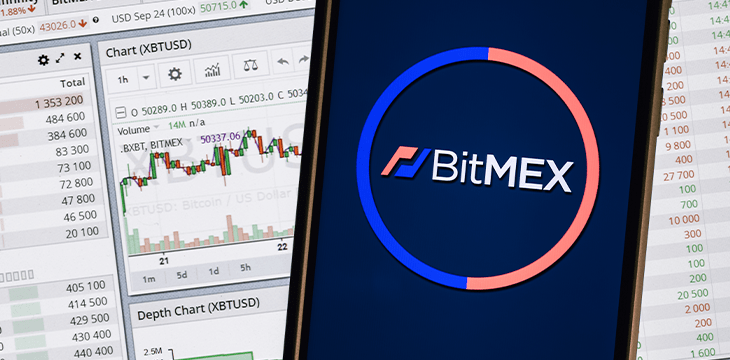
|
Getting your Trinity Audio player ready... |
Arthur Hayes and Benjamin Delo, co-founders of the BitMEX cryptocurrency exchange, have pled guilty to using their platform as a means of dodging U.S. money laundering rules.
On Thursday, the U.S. Attorney’s Office for the Southern District of New York announced that Hayes and Delo had pled guilty to violating the Bank Secrecy Act (BSA) by “willfully failing to establish, implement, and maintain an anti-money laundering (AML) program at BitMEX.”
While Hayes (ex-CEO) and Delo (ex-CFO) could face the possibility of five-year stints in prison stripes, the Wall Street Journal reported that the deals the pair reached argue for sentences of six-to-12 months. The pair will also have the opportunity to seek a lesser sentence when they appear before U.S. District Judge John G. Koeltl at their sentencing hearing (date unspecified). In the meantime, each man has agreed to pay a $10 million penalty representing their “pecuniary gain derived from the offense.”
BitMEX’s other indicted co-founder/ex-CTO, Sam Reed, along with its former head of operations Greg Dwyer, have yet to resolve their own charges. Should no plea deals be forthcoming, the pair are scheduled to go to trial later this year. All four accused additionally faced charges of conspiring to violate the BSA, which also carries a potential maximum five-year prison sentence.
BitMEX previously reached a $100 million settlement with the U.S. Commodity Futures Trading Commission (CFTC) and the Financial Crimes Enforcement Network (FinCEN). The site also faces a number of civil suits by aggrieved customers who accuse BitMEX of market manipulation against their own customers.
Regulations, schmegulations
The DoJ’s case against BitMEX was pretty damning, given that the exchange served “thousands” of U.S. customers between September 2015 and the September 2020 indictment, even as its principals publicly denied engaging in such activity. BitMEX also served customers in Iran in defiance of Office of Foreign Assets Control (OFAC) sanctions.
In May 2018, the exchange shrugged at allegations that it was being used to launder the proceeds of a crypto hack, and failed to subsequently implement any kind of AML or know your customer (KYC) programs. In fact, BitMEX failed to file any suspicious activity reports between 2014 and September 2020.
The scale of BitMEX’s hubris was immense, with Hayes appearing on U.S. TV to promote the site and engaging in ‘marketing stunts’ to boost the exchange’s U.S. customer base. Meanwhile, Delo personally altered a U.S.-based customer’s internal tracking information to position him in a non-U.S. country because the customer in question was “famous in Bitcoin.”
Past is prologue
U.S. Attorney Damian Williams said exchanges “have become critical gatekeepers in efforts to ensure that U.S. markets are fair, efficient, and secure.” Instead, Hayes and Delo “built a company designed to flout” their obligations to drive out “crime and corruption.” Williams said the DoJ would continue to investigate and prosecute “money laundering in the cryptocurrency sector.”
The U.S. has long engaged in extraterritorial projection of its authority on a wide variety of legal and regulatory fronts. This jurisdictional overreach has accelerated in pace with the expansion of the internet as global firms discover new ways to reach U.S. customers. It’s also taken on a new urgency with the rise of digital assets and a perceived threat to the U.S. dollar’s status as the world’s reserve currency.
In many ways, Uncle Sam is not unlike an elephant; slow moving, but with a long memory and you don’t want to be too close if it gets pissed off. Cautionary tales like BitMEX will serve as precedents for future enforcements against those members of the crypto crime cartel who refuse to amend their wicked, wicked ways.
Follow CoinGeek’s Crypto Crime Cartel series, which delves into the stream of groups—a from BitMEX to Binance, Bitcoin.com, Blockstream, ShapeShift, Coinbase, Ripple, Ethereum, FTX and Tether—who have co-opted the digital asset revolution and turned the industry into a minefield for naïve (and even experienced) players in the market.
Recommended for you
Lorem ipsum odor amet, consectetuer adipiscing elit. Elit torquent maximus natoque viverra cursus maximus felis. Auctor commodo aliquet himenaeos fermentum
Lorem ipsum odor amet, consectetuer adipiscing elit. Accumsan mi at at semper libero pretium justo. Dictum parturient conubia turpis interdum

 11-22-2024
11-22-2024


